I watched a fly fishing film the other day and I was struck less by the size of the trout, and by the gorgeous scenery, and by the anglers — who were young, attractive and flashing great big toothy smiles — than I was by something that seems to fly under the radar on a pretty regular basis nowadays.
The people in front of the camera were poor casters.
Does that seem weird to you? Because it sure did to me. I honestly don't know why anyone would make a fly fishing film with anglers who have not yet mastered the most basic element of our sport. It's like shooting a basketball documentary with players who can't dribble, or making a cooking show with a chef who doesn't know how to handle a kitchen knife. Maybe the times have changed, but I just can't imagine an icon like Warren Miller producing a great ski film with skiers who struggle to make decent turns.
Yet there they were ... two folks decked out in the latest gear, and smiling into the camera, and casting like they had absolutely no clue. Watching them flail away made me wonder if the reason we see so little casting in fly fishing films and videos is because the anglers simply aren't up to it. (Watching them also made my shoulder ache.)
Now I wouldn't bring this up if there wasn't a rock-solid correlation between our ability to throw a nice line and our ability to get it done on the water. But we do need to cast well if we want to maximize our angling success. That's just the way it works.
More Like This
Back when I was guiding on the Henry's Fork and the Madison, I spent a ton of time talking to my clients about casting. Twenty five years later nothing much has changed. We teach our School of Trout students great fly casting form right from the start, and we also teach them how to identify and correct their mistakes. After all, solid casting is the foundation of fly fishing success.
So what can you, as a beginning or intermediate angler, take away from this particular story?
-
You should take the time to learn good form. Casting a fly rod isn't quite as difficult as swinging a golf club or hitting a baseball, but it does require that you understand the basic mechanics. At the end of the day, it doesn't matter whether you learned those mechanics from a book, a video, a friend, a guide, or an actual fly fishing icon like John Juracek or Andy Puyans. You still need to understand how to hold, and move, the rod.
I'm not going to go into all the details of good casting — you can learn more here — but you should keep in mind that the line tends to follow the rod tip, and that good casts typically start at the shoulder rather than the elbow or the wrist.
-
Remember to focus on your line handling skills. I can't tell you how many people I've seen over the years who don't have a clue how to hold the line, or control the line, or lengthen or shorten the line while they're casting. Good casting requires good line management, and that means your hands have to work together, in concert.
Is that a little like patting your head and rubbing your stomach at the same time? Yes, it is. So concentrate on perfecting your line handling skills until muscle memory eventually takes over and it all becomes second nature.
-
Fly rods need to bend in order to work correctly. (Don't believe me? Try to cast with a pool cue.) Why is that 'bending' aspect important? Because lots of "experts" will tell you that stiff fly rods are better than not-so-stiff rods ... and that's simply not true.
The more effort you have to put into bending your rod, the more effort you have to put into your casting. And believe it or not, we're trying to make things easier on the water, rather than harder. Long story short, it helps to fish rods that actually flex and bend.
-
Here's a little-known secret. Men tend to be at a serious disadvantage when it comes to casting. So if you're a man ... well, bummer. You have a built-in handicap. Let's talk about it.
It turns out that most women have a rare and wondrous skill. Somewhere along the line, they learn to listen. And they don't just go through the motions, with the requisite nodding of the head and occasional eye contact, but somehow, and for some strange reason, they actually do hear what other people have to say. I know this will come as a shock to some of you, but it's true nonetheless.
Men, however ... nope, we don't listen. Almost never. So when things go wrong — for example, when our form falls apart — we don't turn to people who know how to cast. Instead, we rely on Manly Rule #6. I'm going to paraphrase here, but the essence of Manly Rule #6 is that when something doesn't work out, we do it harder and faster. That may actually be solid advice when it comes to fighting off cave bears, or when we're breaking big rocks into smaller rocks, but it's not typically good advice for fly casting. So even though a fair number of you will find this tip to be counter-intuitive — and perhaps illegal — if you're a man and you have problems with your casting, do not automatically respond by casting harder and faster. And no, I'm not kidding.
-
Practice your casting. I can't say that enough, but I'll try. Practice. Practice. Practice. Practice. Oh, and practice. But please don't try to practice when you're out fishing. Fishing and practice are two different things, and they both require so much of your attention that you should never, ever try to do them simultaneously.
Some of you may be wondering why you can't skip practice entirely and go straight to fishing. Just off the top of my head, I can tell you that your casting will improve if you practice, and your fishing will also improve, and you'll likely catch more, and bigger, trout. (Or bass, or pike, or steelhead, or salmon, or bonefish, or tarpon, or whatever else it is that you fish for.) And if that's not enough of a reason, just think how disappointed you'd be if you were forced to participate in a fly fishing movie and all your mistakes were immortalized on YouTube and Vimeo. Don't take that chance. Practice.
I'm going to wrap things up with a simple observation birthed from more than 30 years of fly fishing experience and thousands of hours on the water. There will always be slow days. That's just the way life works. But good casting is its own reward. In fact, really good fly casting is akin to poetry in motion. It's a treat to watch a great caster like John Juracek, or Pete Kutzer, or Pat McCabe throw those perfect, effortless loops, and there's also a tremendous amount of satisfaction in heading to the river and holding up your end regardless of whether the fish decide to bite.
Please don't try to cut corners. Learn to cast effectively. It takes a little time, and it requires a bit of effort, but it's an investment in your angling that will literally pay dividends for the rest of your life.




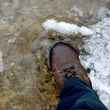

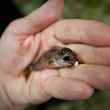

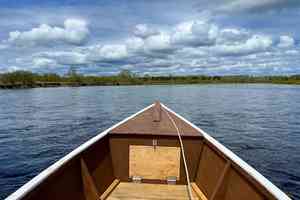


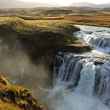

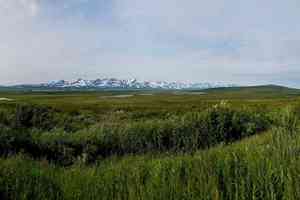






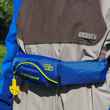




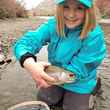
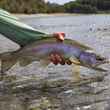
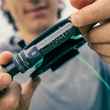
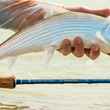

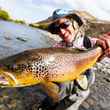
Comments
Wade DeHate replied on Permalink
Couldn’t agree more about listening skills vs testosterone.
Tim Shetler replied on Permalink
I wish somebody would post more casting videos of John Juracek. The couple old, grainy videos make me believe he has the cast to emulate. However, I'm not likely to attend School of Trout to get him in person. I hope that's not why there aren't more videos, though it seems like it might be the reason.
Pages